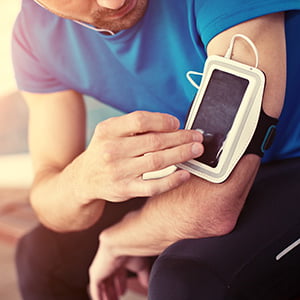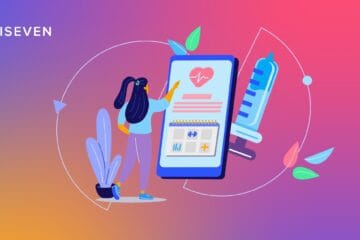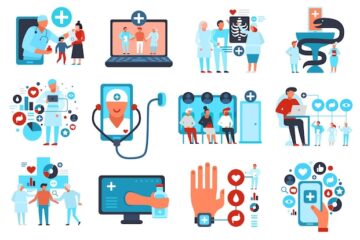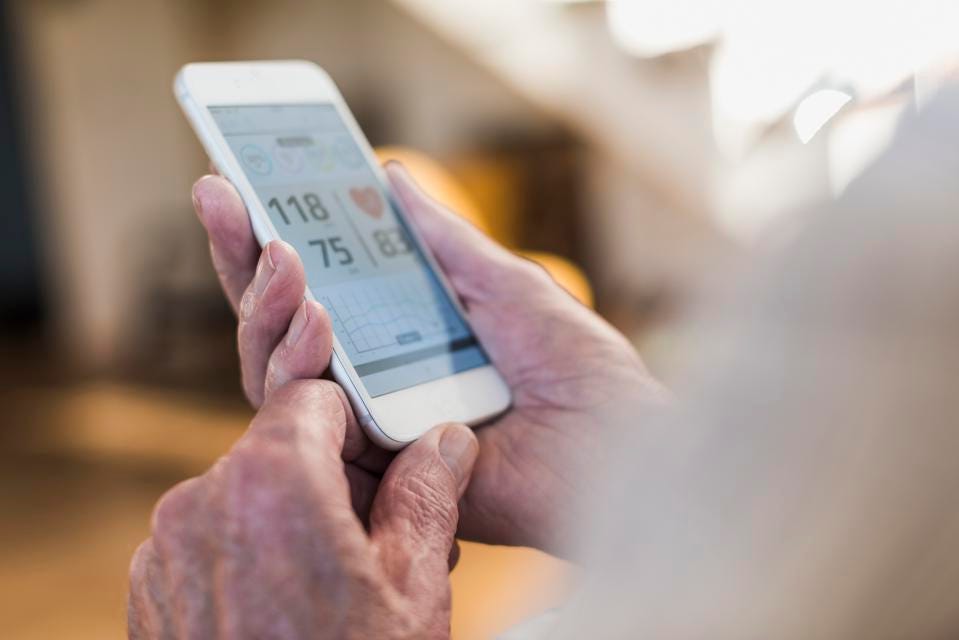oh my! Although the wearable fitness tracker sensation is a relatively new development — devices similar to today’s trackers only hit the consumer market in the 2000s — they’ve become regular sights, nearly as common as smartphones themselves.1 However, is this wearable technology really as beneficial as it seems?
All things considered, the rising popularity of wearable fitness trackers and smartphone health applications (apps) isn’t terrible. After all, people are exercising and maintaining healthy diets, and doing so consistently. This technology gives people incentive to become involved and interested in their own health and to have fun doing it — unlike many other apps, which tend to act more as video games and result in a lack of physical activity.
Lack of Regulation
While these trackers and apps claim to offer many health benefits to their users, there is no guarantee that they actually live up to expectations. Of roughly 150,000 available health and wellness apps, the Food and Drug Administration (FDA) has only approved 160.2The FDA has not mindlessly overlooked such a large percentage of these apps. Because health apps and fitness trackers are considered to be “low-risk,” meaning the products are noninvasive, not implanted and don’t require regulatory controls to prevent users from being harmed, the FDA does not see them as requiring regulation.
SEE ALSO: Healthcare Data Boom
By not requiring the creators of these apps and trackers to seek FDA approval, the FDA hopes to encourage further development of low-risk products intended to promote healthy lifestyles.3 With a lack of FDA regulation can come a lack of precision, however; while these apps may claim to provide reliable data, no matter how accurate it might seem to users, there are no federal guidelines requiring the information provided by these apps to be precise.
Apps for Research
Despite the potential lack of precision, many researchers are already utilizing these apps for studies involving movement. According to Fitbit, over 200 studies using more than two billion minutes of Fitbit data have been performed since 2012. The use of these wearable trackers enables researchers to eliminate subjectivity from data, as participants in the past could often inadvertently report the wrong information or forget to keep track entirely. However, as Fitbit doesn’t publicly share the algorithms used to generate data, researchers are hesitant to rely too heavily on the data provided by the trackers.4
While researchers know that the data provided by fitness trackers is not necessarily as reliable as data provided by other research tools, they’re undeniably useful. These devices are relatively inexpensive and, because of their popularity, easy to convince participants to wear consistently. Many studies utilizing Fitbits are currently in progress, including studies on patient activity before and after spine surgeries and on the possibility of physical activity reducing a patient’s likelihood of becoming hospitalized before getting a liver transplant.4
Pros and Cons
Many frequent users of wellness and fitness apps are becoming increasingly dependent on this technology to give them information on their health. Certain apps echo popular websites like WebMD or Healthline, which offer information about different symptoms and illnesses, but aren’t necessarily capable of accurately diagnosing patients — and certainly aren’t as qualified as clinicians. Regardless, many users rely on these websites and apps rather than seeking professional help, which is far from ideal.
A 2015 study from Harvard Medical School and the RAND Corporation found that, of the top 23 online symptom checkers, correct diagnoses were listed first in only 34% of standardized patient evaluations. Further, these symptom checkers listed the correct diagnosis within the top 20 possible diagnoses in only 58% of standardized patient evaluations.5
Despite the drawbacks, health and fitness apps are far from being the worst technology on the market. A 2015 study including 726 participants showed that current users of fitness apps were 27% more likely to self-report being active than participants who did not use fitness apps. Participants who used fitness apps were also more likely to use their leisure time in a health-oriented way and, overall, had a lower body mass index (BMI) than the other participants.6 Regardless of whether or not these apps are entirely accurate, they do give users incentive to make positive lifestyle changes.
If a patient mentions using a health or fitness app, don’t discourage them from doing so — but make sure that they’re aware of its limitations. Should you recommend health apps to patients? Maybe not yet — the technology is not quite as reliable as it could be — but in a few years, these apps could become the standard first step for diagnosing and monitoring patient health.
Sarah Sutherland is a staff writer at ADVANCE. Contact: [email protected]
References:
- Winchester, H. A brief history of wearable tech. Wareable. 2015.
- WKMG Click Orlando. Health apps not always reliable, doctors say. 2016.
- Slabodkin, G. FDA takes ‘hands-off’ approach to fitness trackers, health apps. Health Data Management.2016.
- Lee, S. Scientists are really using Fitbits to study health. CNBC. 2016.
- Semigran, H., et al. Evaluation of symptom checkers for self diagnosis and triage: audit study. BMJ.2015; 351. doi: 10.1136/bmj.h3480.
- Litman, L., et al. Mobile exercise apps and increased leisure time exercise activity: a moderated mediation analysis of the role of self-efficacy and barriers. Journal of Medical Internet Research. 2015; 17(8). doi: 10.2196/jmir.4142.
[Source:-ADVANCE]




